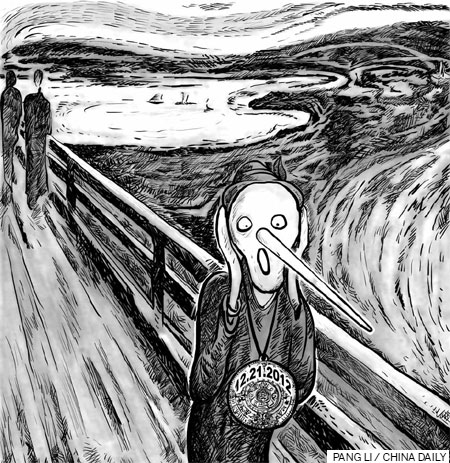
Those who believed the world was going to end were disappointed because they placed too much faith in the unknown. While some may have been hurt financially or psychologically, others treat doomsday as a game.
Are you reading this article now or are you in a reverie in which you're reading it? Perhaps you're already away from this world, holed up in a bunker or on a container on top the Himalayas, in which case I really doubt this newspaper would reach you, digital or in print, since everything that's not on the ark has been annihilated.
Doomsday as predicted by some ancient Mayans turns out to be a non-event, disappointing for those ardent believers in the sanctity of anything ancient.
But has it ever occurred to them that, had the prediction been correct, they would have no opportunity to bask in an I-told-you-so glow of gloating?
I don't think many of them would have access to the ark, which could have been frozen on the mountain anyway, with its cargo and passengers in a condition not unlike that of a frosted-over refrigerator.
Logically, not many of them could have been high enough in the power hierarchy to get tickets, obviously more precious than winning the lottery for a car license in a major Chinese city.
The Mayan calendar is so complicated it would take a genius to decode. The more I attempt to unravel it, the more I get lost. I guess the Mayans miscalculated by about 1,000-odd years.
They could have been referring to the sudden decline of their own civilization in the 9th century when mysterious forces obliterated much of their population.
One might say apocalypse covers the whole humanity as we know it, but if we scale it down it makes much more sense.





Why not rent a boyfriend, or girlfriend to please parents during the Spring Festival?